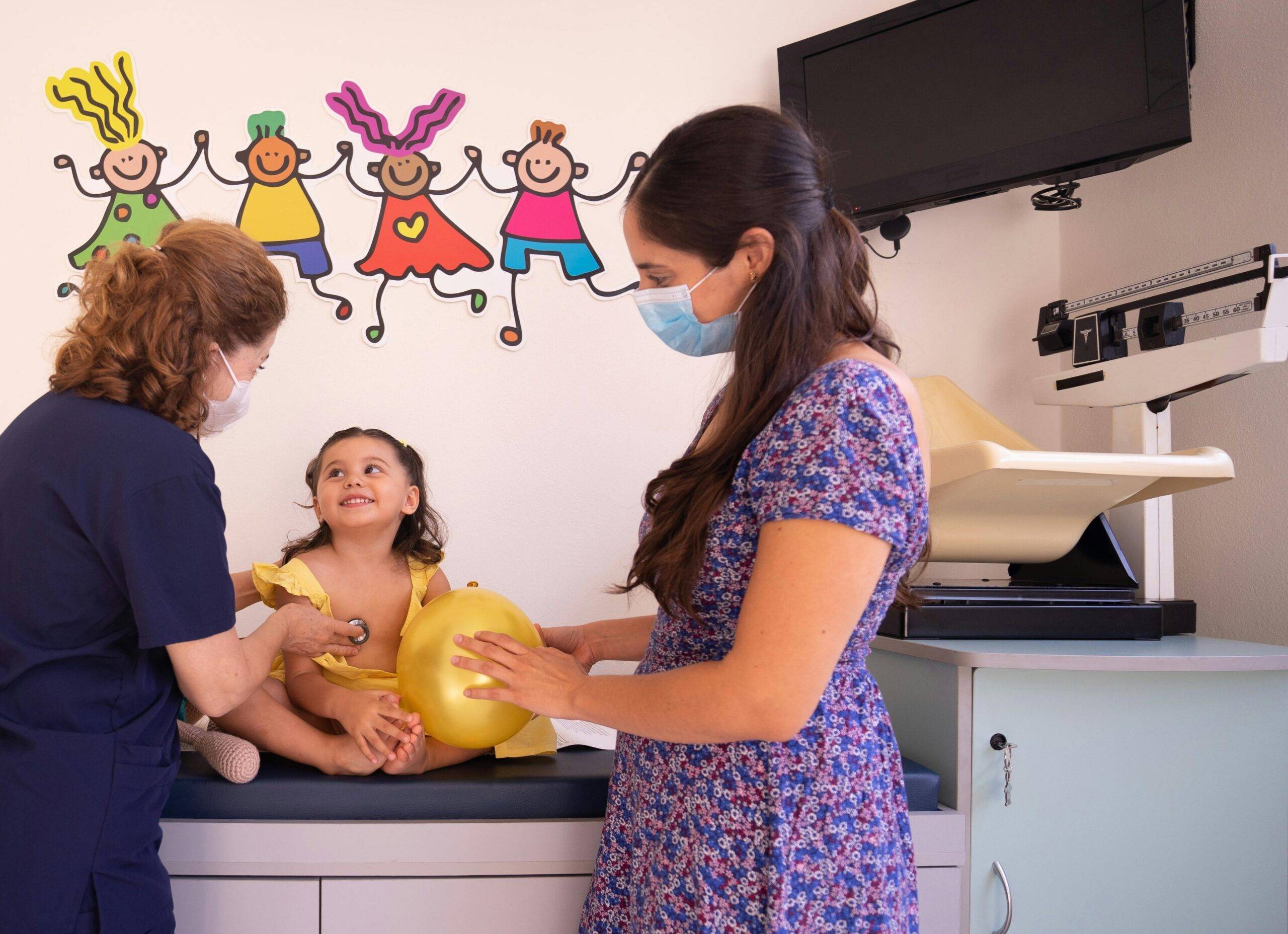Why Choosing the Right Pediatrician Matters

Choosing a pediatrician is one of the most important decisions you’ll make for your child’s health. This doctor will be your partner in keeping your child healthy, from birth through the teenage years. They’ll help with everything from routine checkups to unexpected illnesses and even offer advice on nutrition and behavior.
However, a pediatrician’s role goes beyond just treating sickness. They’re there to support your child’s growth, development, and overall well-being. They’ll answer your questions, calm your worries, and celebrate milestones with you.
This guide will walk you through how to find the right pediatrician for your family. We’ll cover when to start looking, what factors to consider, and how to build a strong relationship with your child’s doctor.
When to Start Looking for a Pediatrician

It’s best to start searching for a pediatrician during your pregnancy, ideally in the second or third trimester. This gives you time to research, ask for recommendations, and schedule interviews without feeling rushed.
The American Academy of Pediatrics (AAP) recommends scheduling a prenatal visit with a pediatrician during the third trimester. This visit helps establish a relationship and ensures your baby has a medical home from Day One. Starting early also allows you to:
- Ensure the doctor is accepting new patients.
- Discuss any specific concerns or preferences you have.
- Feel more prepared and confident before your baby arrives.
Factors to Consider When Choosing a Pediatrician
Finding the right child doctor involves more than just picking a name from a list. Here are some key factors to consider:
Location and Accessibility: Choose a doctor whose office is conveniently located near your home or workplace. Consider office hours, availability for urgent visits, and whether they offer telehealth services.
Insurance: Verify that the doctor accepts your health insurance plan. This helps avoid unexpected costs and ensures your visits are covered.
Hospital Affiliation: Check which hospital(s) the doctor is affiliated with. This is important in case your child needs hospital care or specialized services.
Philosophy of Care: Discuss the doctor’s approach to topics like vaccinations, antibiotic use, and feeding methods. Ensure their philosophy aligns with your values and preferences.
Communication Style: Pay attention to how the pediatrician communicates. Do they listen attentively, answer your questions clearly, and make you feel comfortable? Good communication is key to a strong doctor-parent relationship.
Office Environment and Staff: Visit the office to observe the environment. Is it clean and child-friendly? Are the staff members welcoming and helpful? A positive atmosphere can make visits more pleasant for both you and your child.
Availability of Coverage: Ask about who provides care when your pediatrician is unavailable. In a group practice, other doctors may cover for each other. In a solo practice, there should be a plan for after-hours or emergency care.
Recommendations: Seek referrals from friends, family, your obstetrician, or colleagues. Personal experiences can provide valuable insights into a pediatrician’s care.
The “Meet and Greet” (Prenatal Visit)
A prenatal visit, often called a “meet and greet,” is an opportunity to get to know the pediatrician before your baby is born. During this visit, you can:
- Tour the office and meet the staff.
- Discuss office policies, such as appointment scheduling and after-hours care.
- Ask about the pediatrician’s approach to newborn care, vaccinations, and common concerns.
- Share your medical history and any specific preferences or concerns.
This visit helps establish a relationship and ensures you’re comfortable with your choice.
What to Expect at Your First Pediatrician Visits
The first visits to your pediatrician are big milestones—not just for your baby, but for you as a parent too. These early checkups set the stage for your child’s healthcare journey, offering a chance to catch issues early and provide support when you need it most.
The Initial Newborn Visit: What Really Happens
Your baby’s very first visit to the pediatrician usually happens within 3–5 days after birth. This appointment is especially important if your baby was discharged from the hospital less than 48 hours after delivery. Here’s what you can expect during this visit:
📏 Growth Measurements
The doctor or nurse will carefully measure:
- Weight: to ensure your baby isn’t losing too much after birth (some loss is normal).
- Length: to track overall growth.
- Head circumference: an important indicator of healthy brain development.
🩺 Full Physical Exam
The pediatrician will do a full head-to-toe check, looking for:
- Clear skin and normal color
- Proper movement and muscle tone
- Signs of jaundice (yellowing of the skin)
- Healthy reflexes
- Clear breathing and heartbeat
🍼 Feeding and Sleep Discussion
Feeding is a big topic during newborn visits. The doctor will ask questions like
- How often is your baby feeding?
- Are you breastfeeding or formula feeding?
- Is your baby having enough wet and dirty diapers?
This is also your chance to talk about sleep patterns, safe sleep positions, and any struggles you’re having with feeding or routines.
🧸 Newborn Care Guidance
The pediatrician will share tips on:
- Umbilical cord care
- How to clean your baby safely
- Diaper rash prevention
- Soothing techniques for fussiness
- When to call the doctor for common concerns
This visit is about making sure your baby is healthy—but it’s also about you feeling confident and supported as a parent.
Well-Child Visits
Regular well-child visits are essential for monitoring your child’s growth and development. These visits typically occur at
- 2 weeks
- 2 months
- 4 months
- 6 months
- 9 months
- 12 months
- 15 months
- 18 months
- 24 months
- Annually thereafter
During these visits, the pediatrician will:
- Track growth and developmental milestones.
- Administer vaccinations according to the recommended schedule.
- Provide anticipatory guidance on nutrition, behavior, and safety.
- Address any concerns or questions you have.
Building a Strong, Trusting Relationship with Your Pediatrician
Creating a lasting relationship with your pediatrician is more than just showing up for appointments—it’s about building trust, open communication, and mutual respect. When you and your pediatrician work as a team, your child gets the best care possible.
Be Open and Honest from Day One
Don’t be afraid to speak up. Share your questions and concerns—even the ones that might feel small or silly. Whether it’s about diaper rashes, sleep struggles, or developmental delays, your pediatrician is there to listen and help.
Being honest about your child’s habits, health, and even your parenting challenges helps the doctor give better, more personalized advice. Remember, they’ve heard it all before—and they’re here to support, not judge.
Ask Questions—No Question is Too Small
Asking questions is one of the best ways to learn and stay involved in your child’s care. Not sure about vaccine schedules? Confused about growth chart percentiles? Ask. A great pediatrician will explain things clearly and make sure you leave each visit feeling informed and empowered.
Try keeping a running list of questions in your phone or notebook before each appointment. That way, you won’t forget what you wanted to ask once you’re in the exam room.
Stay Informed and Engaged
Take an active role in your child’s health journey. Keep a copy of their vaccination records, note important milestones, and track any symptoms or changes you notice. Many pediatric offices now offer patient portals where you can view records and message the doctor directly.
Staying informed not only helps you feel more confident, but it also ensures your child receives timely, accurate care.
Provide Constructive Feedback
If something isn’t working—like long wait times, confusing communication, or trouble scheduling appointments—let the pediatrician’s office know. Good practices appreciate feedback and often use it to improve care.
On the flip side, if you love something about your pediatrician or their staff, say so! Positive reinforcement helps strengthen the relationship and lets them know what’s working well for your family.
Your Pediatrician: A True Partner in Parenting
Think of your pediatrician as a teammate in your parenting journey. They’re there not just when your child is sick but also to guide you through everyday challenges—like picky eating, screen time limits, or toddler tantrums.
A solid relationship with your pediatrician can make parenting feel less overwhelming and more supported. And when your child sees you trust the doctor, they’re more likely to feel safe and confident during visits, too.
To dive deeper into how pediatricians support your child’s health at every stage, check out this article: 6 Essential Ways Pediatricians Track Developmental Milestones in Children.
Trust Your Instincts

Finding the right pediatrician is a personal decision. Consider factors like location, communication style, and shared values. Start your search early, ask questions, and trust your instincts.
A pediatrician who listens, respects your concerns, and supports your parenting choices will be a valuable ally in your child’s health journey. It’s okay to switch pediatricians if you feel another doctor might be a better fit for your family. Your comfort and confidence in your child’s healthcare provider are essential.
For more information on pediatric care and finding the right pediatrician, visit Omegapediatrics.com. These articles are worth reading:



